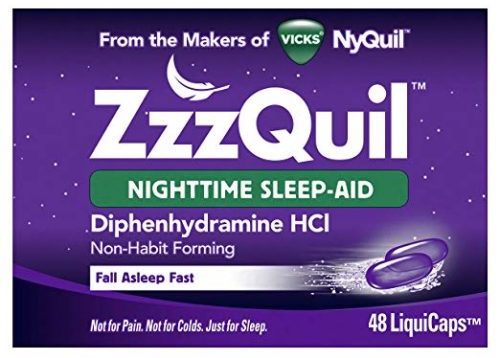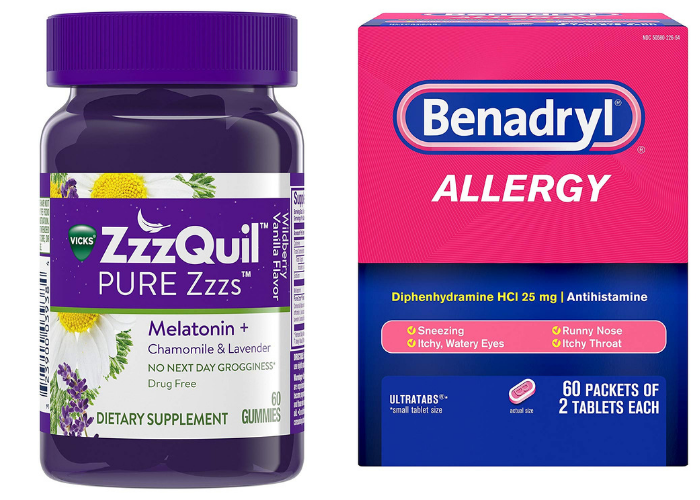Taking an over the counter sleep aid with diphenhydramine once in a while is generally not going to cause problems other than a possible hangover the next day.
Over the counter sleep aids that do not contain diphenhydramine.
Do not give children sleep aids unless cleared by a pediatrician.
Scientists have discovered any otc sleep aids that have something other than diphenhydramine answered by dr.
There are a few caveats however.
It is the sleep inducing element in many medications used as sleep aids.
Otc sleep aids generally contain one of two primary active ingredients.
They over the counter sleep aids don t completely stop working after 8 hours many people feel drowsy for longer than 8 hours after taking them there are 15 more disturbing side effects in part 2 of over the counter sleep aids.
Most over the counter sleep aids contain antihistamines.
Melatonin is an over the counter substance that many people take.
And they are even worse.
Over the counter sleep aids can be effective for an occasional sleepless night.
Older people however can get confused when taking diphenhydramine because it also blocks a brain chemical called acetylcholine which plays a big role in attention and short term memory.
Tolerance to the sedative effects of antihistamines can develop quickly so the longer you take them the less likely they are to make you sleepy.
Most people develop a tolerance very quickly many over the counter sleep aids are simply antihistaminic drugs repackaged and labeled as something to help you achieve sleep he cautioned.
Many americans turn to sleep aids to relieve their insomnia.
Otc sleep aids aren t habit forming in the sense that your body won t become physically dependent on them but they re also not.
Many otc sleep aids such as benadryl and tylenol pm contain diphenhydramine says dr.
The two main types of over the counter sleep aids are diphenhydramine and doxylamine.
The over the counter medication diphenhydramine is found in many sleeping pills intended for insomnia treatment.
There are several people who should avoid this including pregnant and breastfeeding women people who currently have or have a history of enlarged prostrates peptic ulcers asthma glaucoma and bronchitis.
Click the part 2 link below the references to read them now.





























